The art of receiving is a theme that I often write about. As a psychotherapist, I often notice how hard it is for people to receive care and kindness. You might think I’d be proficient at it by now since I often write about it. When I had a recent opportunity to practice it, I was reminded that receiving isn’t so easy for me.
While walking one day, my hat blew off in a gust of wind. A kind man picked it up and graciously handed it to me. Caught off guard, I felt a curious mix of uncomfortable feelings.
I suddenly found myself in a situation where a person was offering something to me — not just my hat, but also kindness. My immediate impulse was to quickly stoop down to pick up my hat before he did, conveying the message that I can take care of myself and don’t need anyone’s help! When he beat me to it, I noticed an awkward, squirmy feeling inside my body.
Instead of completing my movement toward the hat, I decided in a split second of mindfulness to observe what was happening inside me. I was able to notice my discomfort and be curious about it. The mix of feelings and thoughts coursing through me were something like:
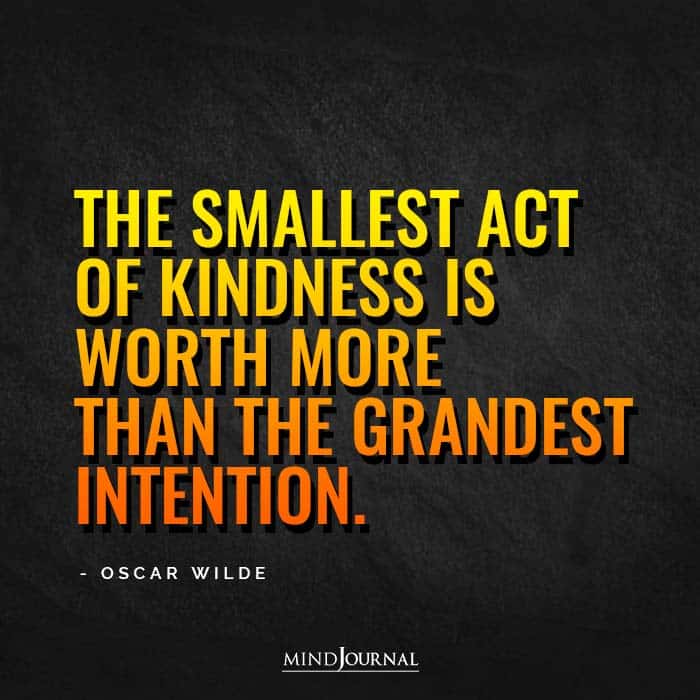
- I don’t want to bother anyone.
- I don’t want anyone to go out of their way to take care of me.
- I don’t want to be seen as a needy person who doesn’t know how to take care of himself.
It’s a little embarrassing to recognize that I was being the typical Western male trained to be independent—projecting an image of being “strong” and not pathetically dependent. Or perhaps it’s just part of the human condition to not allow ourselves to be a little vulnerable and let in kindness from others.
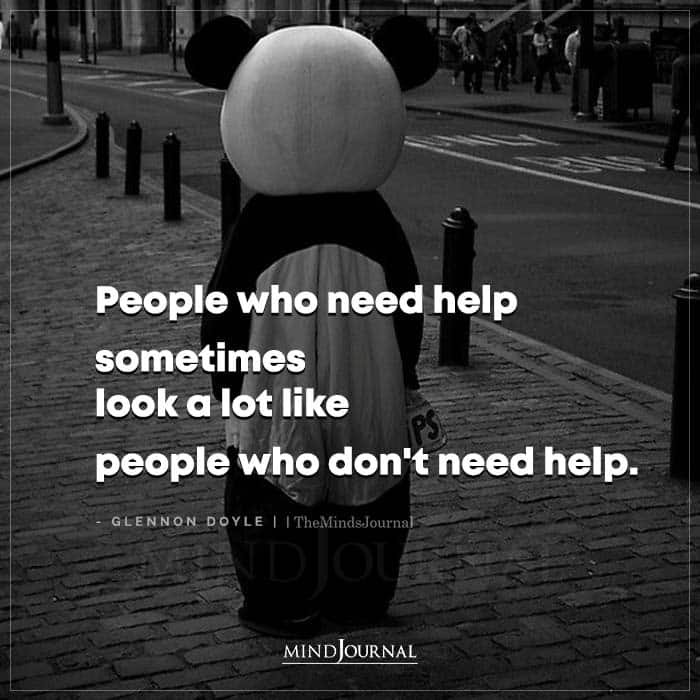
But then something shifted inside me as I gained some distance from the situation. I noticed a sense of amusement that here I am as a therapist who writes about receiving, yet where the rubber meets the road, I’m not particularly better at it than anyone else. Then I wondered, as I often do,
Why is it so darn hard for me (and others) to receive?
I noticed a sense of shame about receiving help.
Shame is the felt sense of “what’s wrong with me?”— a painful sense of being flawed, defective, or pathetic. There’s a belief that if someone sees my real or imagined flaws, I’ll lose respect. I’ll be judged negatively. Scooping up my hat before he could was a way my shame was driving me—and a defensive reaction to it.
Then a kinder thought arose. These are just old feelings and beliefs that have been deeply ingrained. The actual reality is very different from how I’m seeing it. I imagined how I might respond if the man who retrieved my hat had lost his hat.
No doubt, I’d react the way he did. I’d be happy to offer assistance not because I perceived him as helpless or weak, but because it feels good to be helpful, especially when it’s such an easy thing to do. During a moment of offering kindness, there’s a certain kind of connection that can happen, especially if the other person receives it graciously.
Also read What Is Learned Helplessness And How It’s Connected To Trauma
I also recognized, that just like myself, he probably felt good to be helpful. Pre-empting his action would be a kind of insult. It would be a denial and avoidance of human connection.
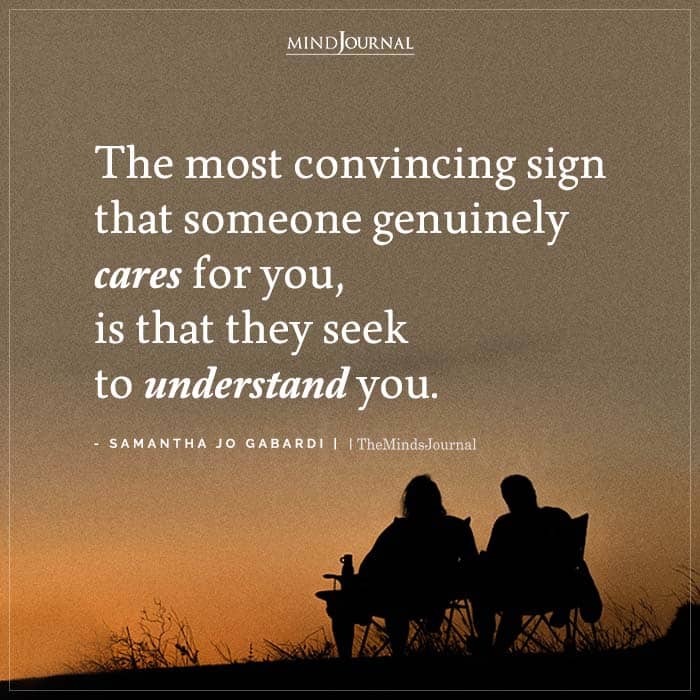
As I was able to pause and notice my initial reaction, followed by a more detached amusement, I took a deep breath and allowed myself to receive not only the hat, but also his good-hearted intention toward me. I smiled, thanked him, and moved on with a sense of humility about how hard it is to receive.
I walked away with a renewed intention to notice opportunities to receive, even if it feels a little awkward or uncomfortable at first—and to enjoy the human contact that flows from giving and receiving.
Also read Healthy Shame And Toxic Shame: How Do We Live With It
Perhaps we’d all feel more connected and less lonely if we suspended the isolating belief that we should be independent and not need anyone. We could add spiritual richness and joy to our lives by embracing our interdependence, relishing opportunities to lower our guard, and receiving others’ kindness with grace and humility.
Are you ready to receive help?
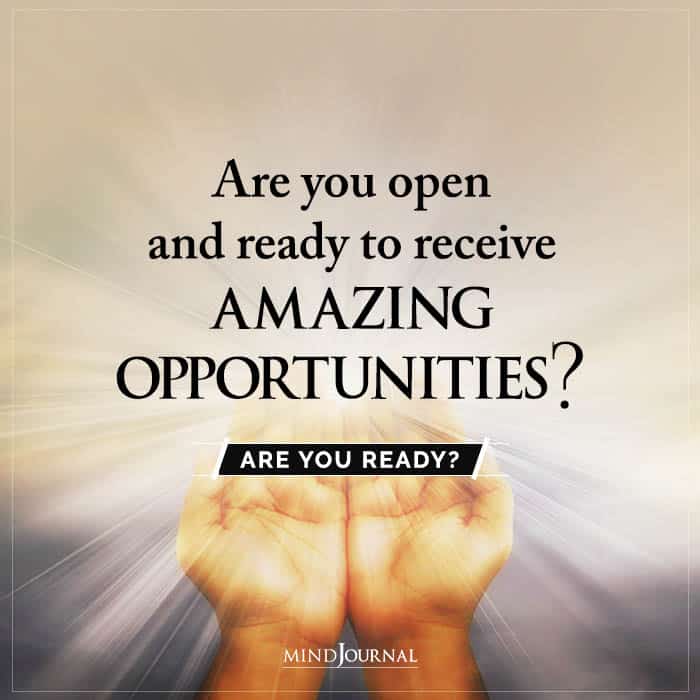
© John Amodeo
Written by: John Amodeo You may access John's free online articles with Psychology Today and check out his books by visiting his website: www.johnamodeo.com Originally appeared on: Psychology Today Republished with permission


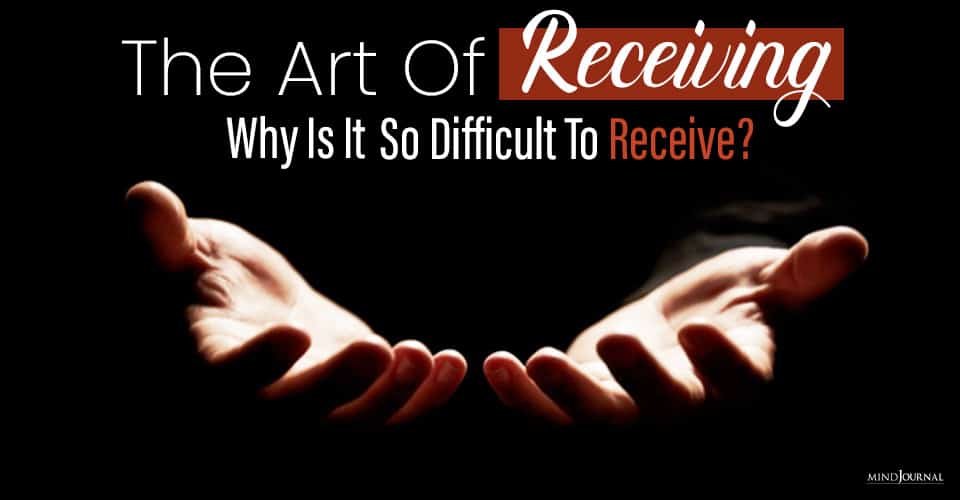







Leave a Reply